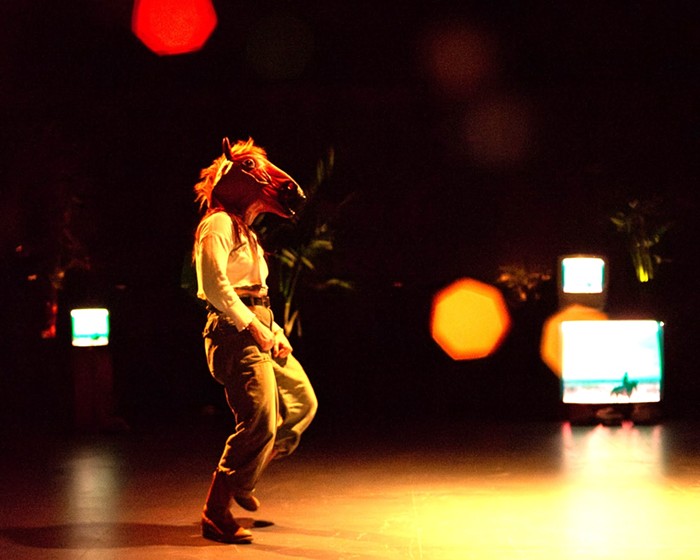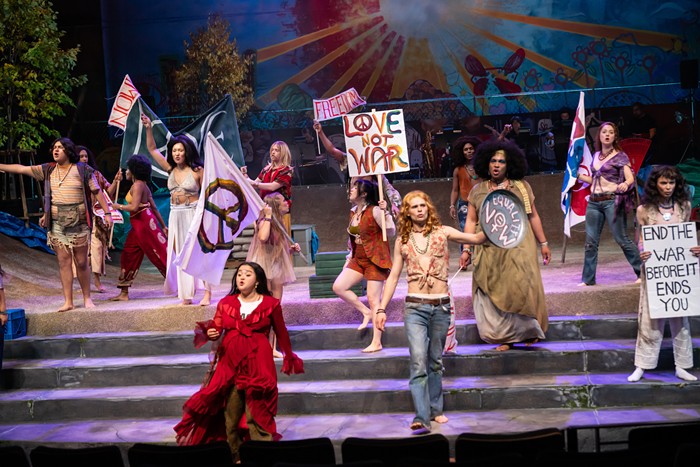With a harshly lit set of a couple chairs and a table, Imago treats A Number almost like an interview, with the protagonist Salter (Tobias Andersen) as the host. It seems at some point in his life, Salter lost his son in a car crash, and so used technology to create a clone. Everything worked fine, except the people who made the clone kept the genetic information and proceeded to make about 20 more versions of the same boy. During the course of A Number, Salter talks to two of the clones, as well as the original. Jerry Mouawad (who also directed the piece) plays the three duplicates well; his appearance never changes, but his body language and vocal inflections clearly indicate a completely different person in each scene.
Imago's production is so well staged and acted, it might actually overwhelm Churchill's tricky text. A Number is extremely plot-driven, yet also strives for ambiguity. Salter mentions that he is trying to meet with all the clones, so why does he end up talking to only two, plus the original? And why does he keep saying the original is dead? And why is the original 35 years old, while the clones are 40? Are the answers to these questions obvious and I just missed them? Or is there a metaphor at work here that I'm too dim to receive? Either way, I came away from this thing frustrated because I felt like I had just spent an hour playing catch-up to something more clever than me. Now I want to see it again, but is that because I yearn to see how the pieces fit together Usual Suspects-style? Or is there more to this thing than just story-telling gimmicks? Does it matter? JUSTIN WESCOAT SANDERS III


















